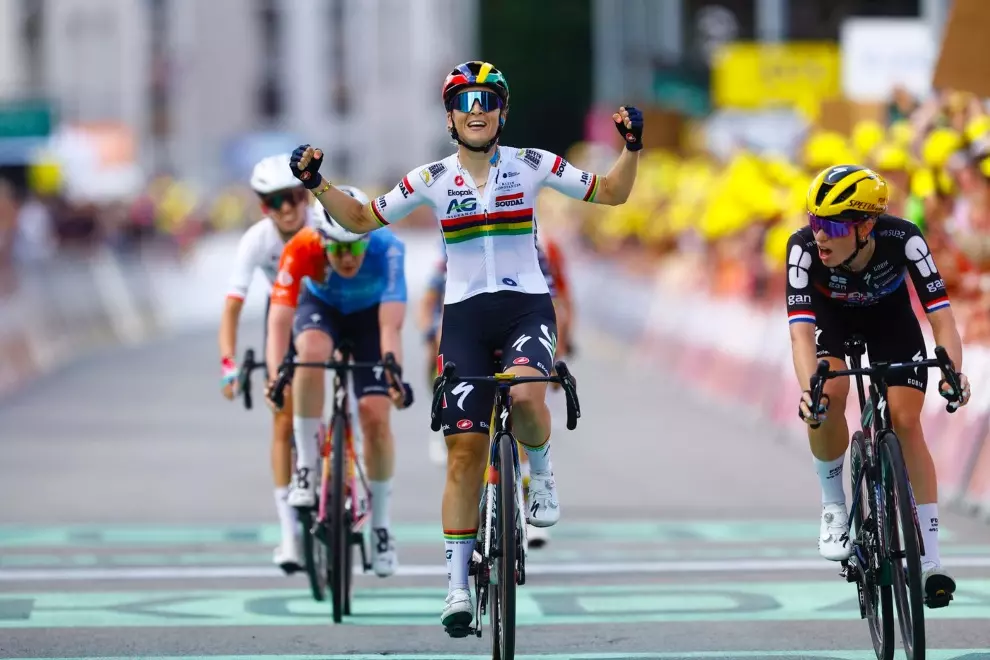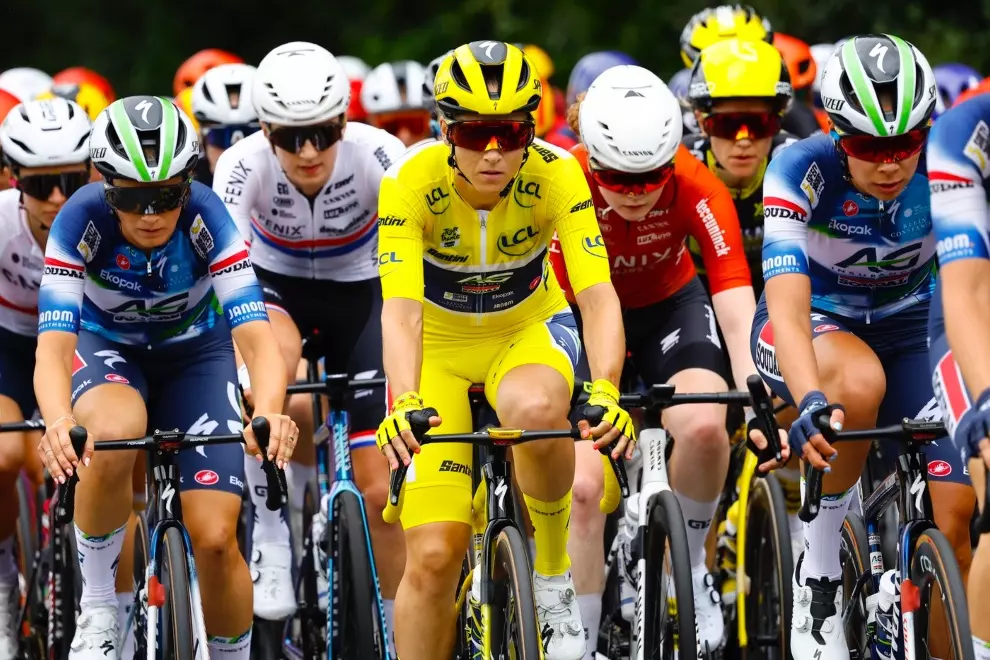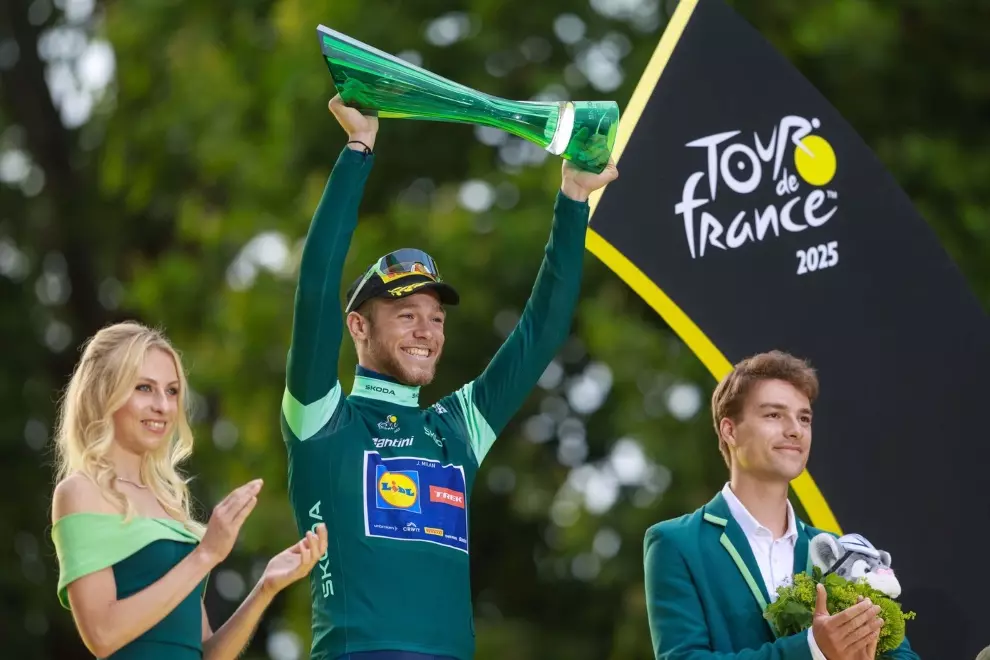Unfortunately, in the final days of the race, a controversy – which was also unprecedented – took some of the shine off this astonishing accomplishment. Jumbo-Visma’s super-domestique Sepp Kuss won the Vuelta red jersey, to the delight of the commentators who covered the race. Unfortunately, he did not win it on the road; he won it in the TV studio and on social media. Because, though he is a marvellous rider and rode a wonderful Vuelta – including an excellent 13th place in the ITT, never his strong suit – he was not the best rider in the race. If the race had been run without the moral crusade, the winner would have been one of Kuss’s teammates, either double Tour de France winner Jonas Vingegaard or the three-time Vuelta victor, Primož Roglič.
The polemic began with 2 km to go in stage 17, on the mighty Angliru, when Vingegaard and Roglič rode away from their GC rivals, including Kuss, in what looked like an attempt and take the red jersey from their teammate. The storm that followed bordered on the hysterical. It began during the running of the race, and it continued on the post-race commentary, with one pundit after the other saying that Vingegaard and Roglič were unfair and that Kuss deserved the red jersey because he had helped them win Grand Tours in past years and because he is such a nice guy.
Former Tour winner Geraint Thomas didn’t agree. “There shouldn’t be any gifts in a Grand Tour,” he told Eurosport. “It’s one thing to gift a stage but I don’t think because someone has worked for you for years that you should let them win.” In fact. Thomas had predicted that Vingegaard and Roglič would attack their teammate. How could he have known that? Because he’s a Grand Tour winner and would surely have done the same.
Nevertheless, the argument was taken up on social media and caused such a furore that Vingegaard and Roglič stopped racing and helped Kuss to a famous Grand Tour victory that may have been deserved but was not earned. Because I believed that he had the legs and the heart of a Grand Tour champion, I also wanted Kuss to win, and I thought he could win it on merit. But it was clear on the Angliru climb that he couldn’t. With Vingegaard and Roglič not racing, the GC competition basically ceased after stage 17, as if there had been an agreement among the top riders to stop attacking each other. This cast a shadow not only over the race but also over Kuss’s victory.
Apparently, most cycling fans saw the man they wanted to win claim the big prize. But that’s now how road racing is supposed to work. The Vuelta is not a popularity contest. To ask racers like Vingegaard and Roglič to stop racing is unfair to them and dishonest to the sport. (Imagine the reaction of Eddy Merckx or Remco Evenepoel if they were asked to stop racing to let a loyal teammate win a Grand Tour.) In sporting competitions, victory usually goes to the fastest, the strongest, the best, not the nicest or most popular. I only hope this was a one-off and we will not have future winners in any sport determined by their popularity.
But there were other fascinating stories in this Vuelta, of course, notably defending Vuelta champion Remco Evenepoel’s disastrous breakdown on stage 13 when he cracked on the Col d’Aubisque and lost more than 27 minutes to his GC rivals, and his subsequent attempts to win as many stages as possible. In the end, he won three, and nearly took stage 20 but the soon-to-be 36-year-old Wout Poels (Bahrain Victorious) outfoxed him in the final 400 meters and beat him to the line by a whisker. So the 23-year-old Soudal-QuickStep rider tried to win the final stage, in Madrid, which is usually decided in a sprint. He joined a five-rider breakaway and helped to keep the peloton at bay until the final 500 meters. Unfortunately, for Evenepoel, also in the breakaway was the best sprinter in the race, Kaden Groves, who won the stage fairly easily in an exciting conclusion to a dramatic Vuelta.
Though he won three stages, Evenepoel looked disgruntled at the end of the race. It was clearly not a satisfying Vuelta for the defending champion, and – except for his victory in the ITT world championship – not a vintage year for him either. Though he won 14 races this year, including five Grand Tour stages, and the Vuelta King of the Mountains jersey, he failed to do well in the two Grand Tours he entered. He left the Giro d’Italia because of Covid and finished 12th in the Vuelta, 16’ 44” behind Kuss. This winter will be a nervous one for Soudal-QuickStep, as Evenepoel weighs his future and decides if he would not have a better chance of winning Grand Tours, and especially the Tour de France, with a different team.




